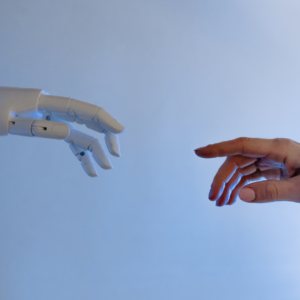
Lately, it’s hard to get away from talking about the fourth industrial revolution. For many though, this brings to light things most of us thought only possible in the movies or in a science fiction book. Instead, we’re seeing in real-time how artificial intelligence (AI) is creating new ways to complete tasks.
Where Industry 4.0 might lead us next still is anyone’s guess. But what is clear is that the implementation of AI will kill many jobs. A new report from the McKinsey Global Institute found AI and automation will be responsible for cutting a third of the hours worked in the U.S.
Proponents of AI argue the use of AI for white collar workers could free up time for strategic or creative work, although how this might be implemented is still unknown. Those working jobs in Science Technology Engineering and Math (STEM) professions could also potentially receive help from AI.
Increased Liability
Jobs in food services, customer service and sales are believed to be some of the most vulnerable to automation by 2030 and would particularly impact workers who earn less than $38,000 a year, according to the McKinsey report. Women are over-represented in these jobs and often make less than men. This sets the stage for more women than men to lose their job in the next 5-7 years.
Goldman Sachs data analyzed by Mark McNeilly, a University of North Carolina at Chapel Hill marketing professor and Paige Smith, an MBA candidate at the institution, found 8 in 10 women have jobs “highly exposed” to automation by AI, compared to 6 in 10 men, according to the report.
Job Changes Ahead
With the threat of automation looming, an estimated 12 million workers will soon have to change jobs by acquiring new skills. This includes workers young and old, Black and Hispanic workers, women and those without a college degree. This projection has risen 25% since 2021 when the McKinsey Global Institute published a report about work after COVID.
Research conducted at the Leverhulme Center for the Future of Intelligence at Cambridge University, Cambridge, England, hypothesized workers with lower-paying jobs and/or long hours and difficult positions could “get pushed into areas like data labeling,” a process of adding labels to images, video and audio to “teach” machine-learning models to recognize its content. Kerry McInerney, a research fellow at Leverhulme Center for the Future of Intelligence, cautioned that data labeling “can be psychologically very harmful.” This is because of the nature of the material workers will need to name.
Major Hurdles Ahead
For all its so-called benefits, AI will make training and retraining workers a challenge. While some see this as an opportunity to recruit job candidates from underserved demographic groups, others despair that AI will ultimately be unable to filter candidates with an eye toward diversity or to recognize those with non-traditional backgrounds.

